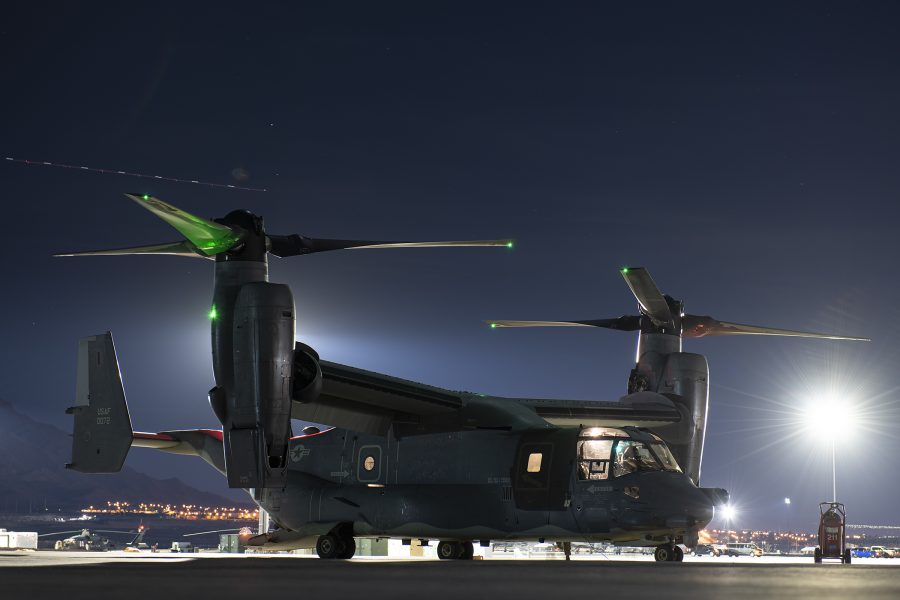Air Force Special Operations Command is looking forward to a future replacement for the CV-22 Osprey, a revolutionary capability that is still new to the command, AFSOC’s head of requirements said.
Brig. Gen. David Harris, the command’s director of strategic plans, programs, and requirements, said the Osprey’s advancement changed how the Air Force is able to insert special operators by being able to fly faster and higher, and carry more. An Osprey’s top speed of about 240 knots, for example, is faster than helicopters such as H-60 variants and CH-47 Chinooks. The Osprey can get “above the clouds” and fly on an instrument profile before dipping through a hole in the clouds to drop troops in a small landing zone.
“They’re getting people to the target area that we weren’t able to get to the target area before,” Harris said during a Nov. 18 AFA Mitchell Institute for Aerospace Studies Event in Arlington, Va.
So AFSOC is looking at: What’s next? A future Osprey replacement could have improved cargo-carrying capability, such as three pallet positions, to serve a larger logistics role. It could have low-observable technology to be more stealth. It could fly much faster, at a speed of 450-500 knots, he said. All capabilities that could help AFSOC “get into places we haven’t seen before,” Harris said.
These capabilities will help provide more dilemmas for a capable adversary to face, he said. While it can be easier for an enemy to deny a larger mobility aircraft’s ability to land at austere locations, a vertical lift capability is harder to counter.
“If our adversary is targeting every 5,000-foot runway that is out there, every 6,000-foot runway that is out there, can they target every batch of grass that’s out there?” he said.
The Osprey has been a “workhorse” in current operations, especially in Afghanistan, Harris said.
